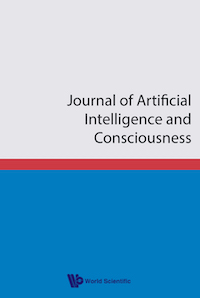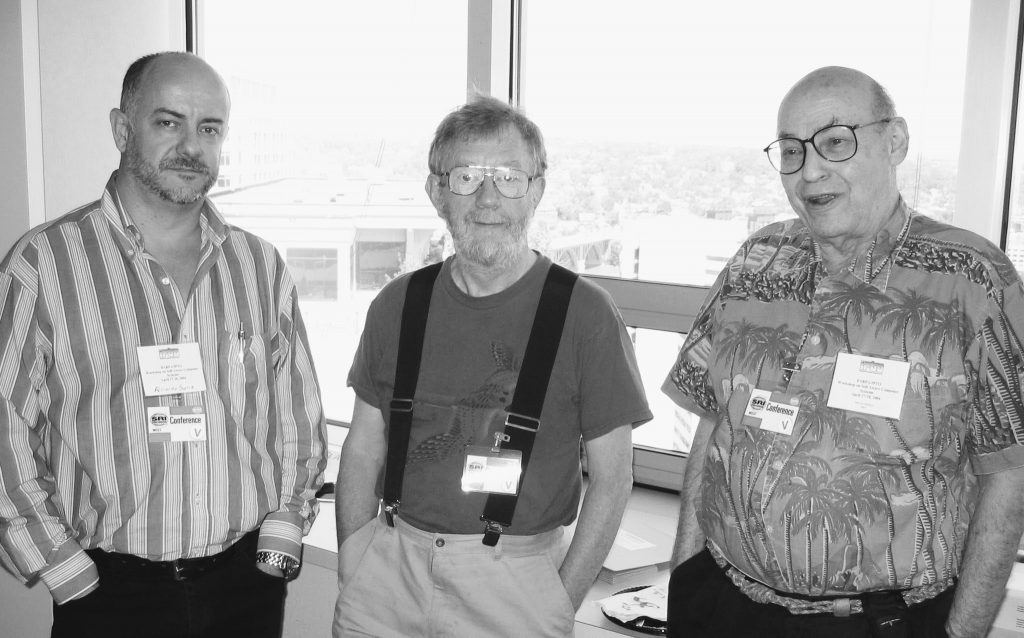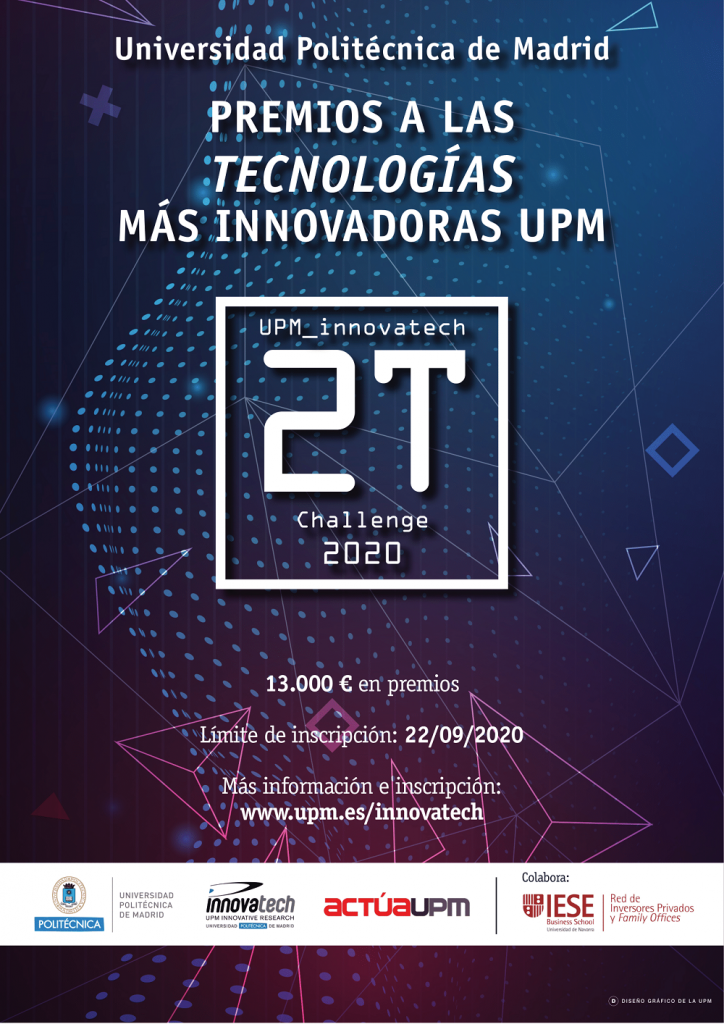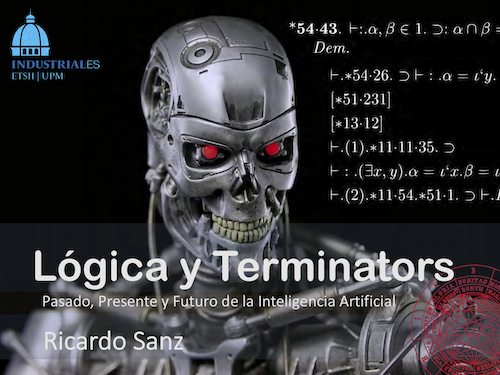Un Seminario UPM celebrado el 24 de Mayo de 2022 organizado por AIR4S, el Digital Innovation Hub en Inteligencia Artificial para los Objetivos de Desarrollo Sostenible, coordinado por la UPM y reconocido como uno de los 30 DIH más relevantes en Europa en el ámbito de la Inteligencia Artificial.
Journal of Artificial Intelligence and Consciousness
The Journal of Artificial Intelligence and Consciousness (JAIC) will offer a multidisciplinary platform to discuss AI and consciousness in the light of robotics and artificial systems, computational science, psychology, philosophy of mind, ethics, and neuroscience.
The aims and scope of the journal are:
- articles that take inspiration from biological consciousness and/or that explore theoretical issues of consciousness to build robots and AI systems that show forms of functional consciousness;
- articles that employ robots and AI systems as tools to model and better understand biological mechanisms of consciousness;
- articles that discuss ethical problems emerging or uncovered through the overlap of AI and consciousness, and that investigate the ethical and societal impact of consciousness and the limits of it, and
- to pursue the hybridization between the field of AI and the field of consciousness studies.
Go to JAIC journal website.

DARPA Workshop on Self-Aware Machines
In 2004, DARPA and John McCarthy organised a Workshop on Self-Aware Computing Systems because the topic of artificial self-awareness was gaining momentum. It was a workshop by invitation at Washington D.C. Most participants came from USA, but there were two from Europe: Aaron Sloman from UK and Ricardo Sanz from Spain.

These were the thirty-three participants in the workshop:
| Aaron Sloman | Eyal Amir | Push Singh |
| Bernard Baars | James Van Overschelde | Raghu Ramakrishnan |
| Brian Williams | John McCarthy | Ricardo Sanz |
| Greg Sullivan | Ken Forbus | Richard Scherl |
| Danny Bobrow | Tom Hinrichs | Richard Gabriel |
| Markus Fromhertz | Len Schubert | Richard Thomason |
| Deborah McGuinness | Lokendra Shastri | Robert Stroud |
| Drew McDermott | Michael Cox | Sheila McIlraith |
| Don Perlis | Michael Whitbrock | Stan Franklin |
| Mike Anderson | Mike Anderson | Stuart Shapiro |
| Tim Oates | Owen Holland | Yaron Shlomi |
During three days we discussed the possibilities and approaches to machine self-awareness, within the specific pespective of artificial intelligence. Twenty years after, the discussion remains at the same point. Not much advance has been produced
Maybe the problem is too difficult for human minds.
Premio Innovatech 2020 a la tecnología inTelos
El equipo UPM ASLab + TU Delft ha obtenido el Primer Premio en el concurso UPM_innovatech 2T Challenge de 2020.

Esta es una iniciativa de desafío competitivo para investigadores, pionera en España, que busca reconocer y premiar las tecnologías más innovadoras de la Universidad Politécnica de Madrid y contribuir a su desarrollo y comercialización.
La tecnología presentada por el equipo ASLab+TUDelft, InTelos, es el resultado de años de investigación en sistemas auto-conscientes en ASLab. Esta es una tecnología que permite emplear el conocimiento de ingeniería para dotar al sistema de capacidades cognitivas de auto-percepción y control que le dotan de una mayor adaptabilidad, resiliencia y autonomía. Es una tecnología resultante del proyecto ASys.
Tecnología e Inmovilidad
Una charla dada durante el evento sobre Movilidad Sostenible del Foro del Futuro Próximo en 2017.
Singularidad Tecnológica
Evento sobre la Singularidad Tecnológica organizado por la Sección de Pensamiento Marginal del Ateneo de Madrid en 2021.
PRESENTA: Brígida de Fez Algarra
INTRODUCE: José Luis Cordeiro
MODERA: Lola Marcos
PONENTES:
Antonio Miguel Carmona, PhD (Economía) Profesor de Economía, Oficial del Ejército del Aire (RV) y Político
Gabriel Vázquez Torres, Ingeniero Informático, MSc (c) Experto en Data Science e Inteligencia Artificial
Ricardo Sanz, PhD (Ingeniería) Profesor e Investigador de la Universidad Politécnica de Madrid
Lógica y Terminators
La inteligencia artificial es una tecnología muy relevante y de gran impacto potencial en la industria y la sociedad. En esta charla se comentaron algunos de los principales temas que sirvieron de base para un debate con los futuros ingenieros industriales de UPM ETSII. Una conferencia pronunciada dentro del ciclo de conferencias Hazte Industrial.

La versión PDF de las diapositivas de la charla se puede descargar desde aquí.
FFP 2017 Tecnología e Inmovilidad
This is a speech given at the FFP 2017. FFP2017 was a conference organised by the Foro del Futuro Próxmo that took place on September 28-29 de septiembre de 2017 in the Escuela de Ingenieros Industriales de la Universidad Politécnica de Madrid.
FFP2017 analized the impact of mobility technologies in the mobility of people.

A 3 minute version can be seen here
It has always been models
There is a relatively recent boom on model-based X. Model-based development, model-based design, model-based systems engineering, …
In all the domains of engineering, it looks like we have just discovered the use of models to support our work. But this is, obviously, false. It has always been models. All around. All the time.
When an engineer-to-be starts his studies, the first he learns is physics and mathematics: i.e. how to model reality and the language to build the model. In recent parlance we would say that math is just a metamodel of reality. A model of the models that we use to capture the knowledge we have about an extant system or the ideas we have about a system to be engineered.
The distinction between knowledge and ideas may seem relevant but it is not so much. They’re all about mental content; that may or may not be related or co-related to some reality out there. Both knowledge and ideas are models of realities-that-are or realities-to-be that are of relevance to us or our stakeholders.
It has always been models. In our minds and in the collaborative processes that we use to engineer our systems. Model-based X is not new. It is just good, old-fashioned engineering.
It has always been models
There is a relatively recent boom on model-based X. Model-based development, model-based design, model-based systems engineering, model-based minds, …
In all the domains of engineering, it looks like we have just discovered the use of models to support our work. But this is, obviously, false. It has always been models. All around. All the time.
When an engineer-to-be starts his studies, the first he learns is physics and mathematics: i.e. how to model reality and the language to build the model. In recent parlance we would say that math is just a metamodel of reality. A model of the models that we use to capture the knowledge we have about an extant system or the ideas we have about a system to be engineered.
The distinction between knowledge and ideas may seem relevant but it is not so much. They’re all about mental content; that may or may not be related or co-related to some reality out there. Both knowledge and ideas are models of realities-that-are or realities-to-be that are of relevance to us or our stakeholders.
It has always been models. In our minds and in the collaborative processes that we use to engineer our systems. Model-based X is not new. It is just good, old-fashioned engineering.